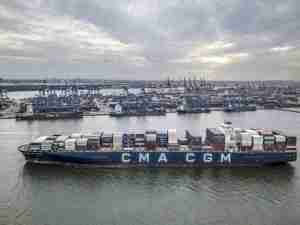Anglo American gets operating permit for Brazil iron ore project
By: Reuters | Sep 30 2014 at 05:19 PM | Maritime
Anglo American Plc said on Tuesday that it obtained a Brazilian license to start operating its long-delayed, $14 billion Minas-Rio iron ore mining project, which is expected to enable its first shipment of ore by year-end.
Starting the project, though, is unlikely to end Anglo American’s troubles in Brazil.
The permit, from Brazil’s environmental-protection agency Ibama, is for the project’s mine and processing plant in Minas Gerais state, Anglo American said in a statement. The company expects to produce between 11 million and 15 million tonnes of iron ore in 2015, with output capacity rising to 26.5 million tonnes a year sometime in 2016.
Last week, Anglo American received an operating license for the 525-kilometer (326-mile) pipeline that will carry the iron ore, mixed with water in a slurry, to the company’s ore docks at the Port of Ac in Rio de Janeiro state.
The biggest-ever foreign investment in Brazilian history, Minas-Rio has run into delays almost from the moment London-based Anglo American bought it from former Brazilian billionaire Bike Batista for about $5.5 billion in 2007 and 2008. The mine, pipeline and port will cost nearly $9 billion when complete.
Mine construction costs have tripled, primarily because of difficulty obtaining land, water rights and licenses for the slurry duct. The pipeline runs a course nearly equivalent to the distance between San Francisco and Los Angeles.
The five-year start-up delay also means Anglo missed selling ore during a period when prices <.IO62-CNI=SI> soared to all-time highs of more than $190 a tonne on abundant Chinese demand. As China has cooled, ore now sells for less than $80 a tonne, so low that many existing mines and new projects have become uneconomic.
Anglo is spending $2.2 billion in 2014 on the project, with another $1 billion marked for next year, which will take the total capital cost of the project to $8.8 billion.
When the company first bought Minas-Rio seven years ago, it said the mine would be in production by the end of 2009 at a total capital cost of $2.35 billion.








